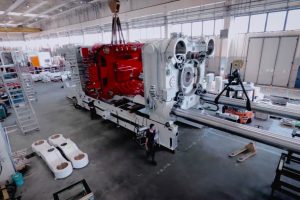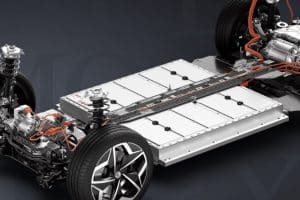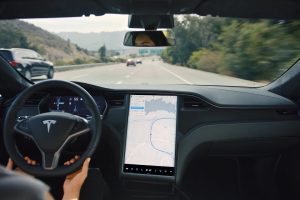Key Points
- 🔍 The oil and gas industry has been promoting biofuels and synthetic fuels to extend the life of combustion engines and maintain a market for their products while attempting to undermine the reputation of electric trucks.
- 🔋 The European Union is revising CO2 standards for heavy-duty vehicles, which threatens the oil and gas industry’s reliance on diesel, leading them to advocate for ‘alternative fuels.’
- 📢 The oil and gas industry has propagated myths to favor biofuels, synthetic fuels, and discredit electric trucks.
- 🌿 This article debunks common myths from three recent publications related to alternative fuels, focusing on e-diesel, Hydrotreated Vegetable Oil, and biomethane.
- 🌱 Myths about biofuels and e-fuels include claims of sustainability, cleanliness, and cost-effectiveness.
- ⚡ Myths aimed at electric trucks include concerns about battery replacement, reduced payload capacity, electricity source cleanliness, and battery production emissions.
The European Union is currently revising its CO2 standards for heavy-duty vehicles (HDVs). This regulation will irreversibly cut the trucking sector’s dependence on diesel. As a result, the oil and gas (O&G) industry is eager to create room for so-called ‘alternative fuels’ in the new law, in spite of the opposition from most truckmakers. To make their case, the O&G industry has been spreading myths to shed a positive light on biofuels and synthetic fuels and to discredit electric trucks.
This briefing aims to debunk the most common myths on trucks included in three recent publications from fuels groups: the European Research Institute for Gas and Energy Innovation’s (ERIG) study on renewable long-haul transport (the ReHaul report), Concawe’s lifecycle analysis HDV comparator tool, and UNITI’s compilation of 17 factsheets about e-fuels. We focus on three different types of fuels: e-diesel (a so-called “e-fuel”), Hydrotreated Vegetable Oil (so-called “renewable diesel,” or HVO) and biomethane, as these are the alternatives to zero-emission trucks most touted by the O&G industry.
1. Seeing fuels through rose-tinted glasses
Myth 1. “Sustainable biofuels and e-fuels are plentiful.”
Myth 2. “Biofuels and e-fuels are cleaner than battery-electric trucks.”
Myth 3. “Biofuels and e-fuels are cheap.”
2. Making electric trucks look dirty
Myth 4. “Batteries need to be replaced during the lifetime of the truck.”
Myth 5. “Heavy batteries lead to lower payloads.”
Myth 6. “Electric trucks are charged with dirty electricity.”
Myth 7. “Battery production causes high CO2 emissions.”
FULL BRIEFING HERE: 7 Myths Briefing
Courtesy of Transport & Environment.





